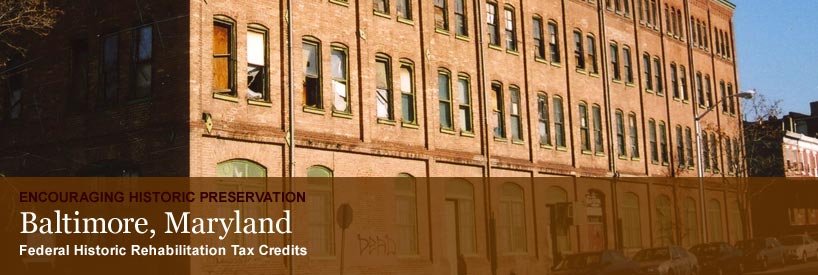Built in the 1890s and vacant for almost 20 years, the H.F. Miller & Son Company Tin Box and Can manufacturing plant was crumbling – brittle windows rained glass on the sidewalks, graffiti marred its once handsome red brick. But where others saw ruin, Donald and Thibault Manekin, local father and son real estate developers, saw potential. In what they call “socially conscious real estate,” the Manekins decided to turn the decrepit tin can factory into affordable housing for the city’s public school teachers. To make the $20 million project work, they applied for the National Park Service’s program that provides 20 percent tax credits to preserve and commercially re-use historic buildings. Donald Manekin said, “Working with the National Park Service was a developer’s dream. Their process was straightforward and ultimately allowed us to realize our original vision of creating affordable housing for teachers new to Baltimore and cost effective office space for non-profits. They have been integral to the success of Miller’s Court.”
“These are the kinds of applications that make our day,” said Jo Ellen Hensley, who oversaw the project for the NPS. “It saves a great old building, helps breathe new life into the neighborhood, and gives the city’s teachers an affordable place to call home.” The building is also kind to the environment – it expects to be gold certified for Leadership in Energy and Environmental Design. The teachers started moving into Miller’s Court in summer 2009.
Today, the National Park Service works with committed partners to spark private investment in historic preservation – more than $48 billion since 1976 – helping old buildings find a new purpose – making America’s Best Idea even better.
















